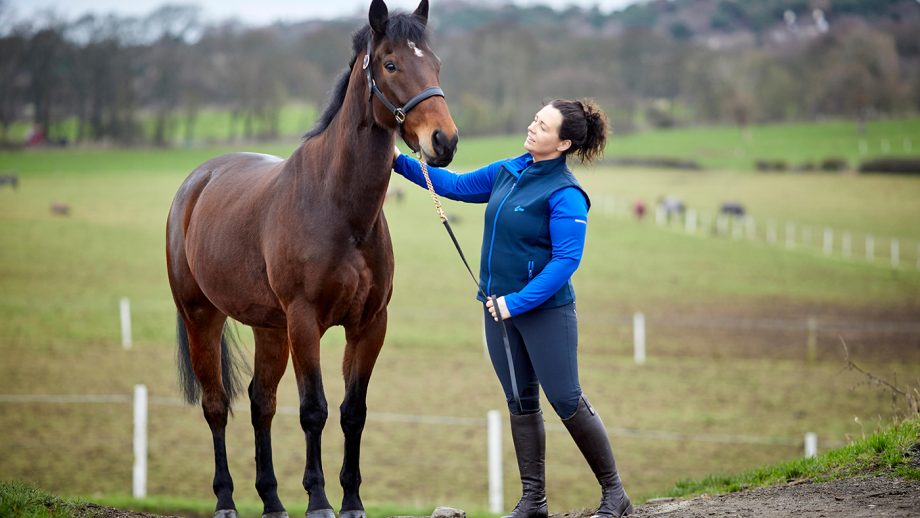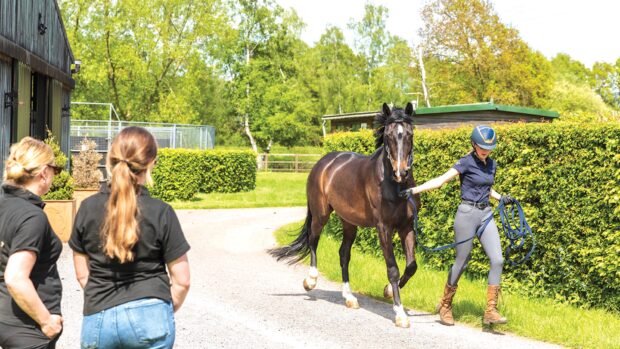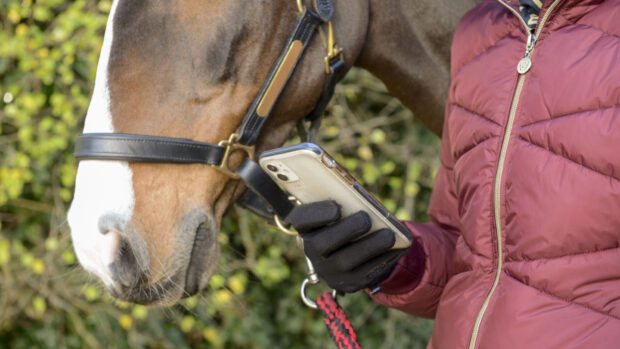BEST practice and how to protect yourself in the equine marketplace is back in the spotlight as a lawyer from a top firm shares her learnings from recent cases.
Alexandra Agnew from Mishcon de Reya, who has an equestrian background, strongly voiced the importance of transparency between buyers, sellers and agents.
Although Ms Agnew cannot comment specifically on cases, she has highlighted some general learnings – including some of the hidden pitfalls and steps people can take to avoid these.
The underlying theme was clarity; whether for a simple transaction or complex sales involving multiple horses, agents, sellers and other invested parties.
“Try to take a step back and ensure things are properly documented to the best and greatest extent possible. Be clear what the parameters of your personal responsibility are so as to limit your exposure to liability at each stage of a transaction,” Ms Agnew told H&H.
“The first and most obvious point is not misrepresenting what you are selling. Make sure the horse is fit for the purpose it is being sold for and be clear about whether it has any vices.”
In defining fit for purpose, taking a step back from a buyer’s hopes and seller’s (occasionally rose-tinted) view of the horse, to look objectively is vital.
“One of the issues that has arisen is around vettings. It’s important to ensure that the vet is appointed by the purchaser and is independent of both the agent and the seller,” added Ms Agnew. “This avoids the risk of an allegation of conspiracy if the horse later turns out to have a material defect, which may not have been picked up by the vet or was determined not to be a serious issue at the time of the vetting.”
She again stressed transparency around commission, and highlights that it is illegal when acting as an agent to secretly profit from the transaction, without telling the person you are acting for.
“Spell it out if you are going to charge an introduction fee or commission,” she said.
“It gets more complicated when there are multiple agents involved, so just try to be clear who is acting for who. Make sure that the person you are acting for knows what profit you gain from the transaction.”
Having your role and costs set out in writing is also a good idea, even if just on text or WhatsApp.
“Be really clear from the outset of who is responsible for taxes, import and export duties and things like the ancillary costs of the agent, such as travelling, as well as stabling and transport,” Ms Agnew said.
“Make sure those are agreed in advance and, where possible, included on invoices. With part-exchanges, make sure that you have clearly ascribed a value to each horse and that it is agreed by both parties.
“Another issue that has come up is uncertainty as to whether agents and sellers are operating through a company or in their personal capacity. This has potential tax implications and there is a risk, when acting in your personal capacity that if it all goes wrong and someone brings a claim against you, that any financial award could be enforced against your assets. I’m not sure people really realise that this could include their lorry, yard, or house.
“As many professionals have businesses, they often assume that they are operating through their business, but you need to be really careful that if you are, you explicitly state that and invoice through your company so that it’s very clear from the outset that’s how you are operating.”
Ms Agnew added that ensuring you understand who has authority to act is also important. You want to ensure that you are negotiating a sale with someone who has authority to negotiate on the buyer’s behalf or you risk a transaction falling through in the final stages.
The Equine Law Firm’s Hannah Bradley, a solicitor who specialises in equine and bloodstock disputes, explained the differences in the eye of the law between selling horses as a private individual, or as a professional trader (“dealer”).
“The law defines a dealer (trader) as somebody who is selling horses with a view to making a profit. So it doesn’t necessarily have to be your full-time or only profession, but if you’re selling horses with a view to making a profit, then you will likely deemed to be a trader,” she told H&H.
“If you’re a trader and you’re selling horses, the law imposes heavy restrictions on you because of the Consumer Rights Act. If you’re a trader selling to a private individual, the Consumer Rights Act applies. That means every horse or pony you sell has to be fit for purpose, satisfactory quality and as described.”
She added that the nature of horses as living beings means defining “satisfactory quality” can be tricky. So her “number one” recommendation would be to have a contractual document of some description.
“Although a contract can’t extinguish a trader’s obligations under the Consumer Rights Act, it can provide a few added layers of protection for professionals who are trying to sell genuine horses,” she said.
“The second recommendation I would give to any seller, whether professional or private, is to disclose things like behavioural quirks or veterinary history in writing, in a permanent form that you can refer back to. Whether that’s in an email, a text message or in a contract, that’s really helpful.”
She added that getting to know the buyer as far as possible, including their limitations and abilities, is helpful, too, in terms of getting a “good feel” for whether a horse is likely to be “the right fit”.
“It’s better to lose a sale than to have litigation ensue,” she said.
For agents, disclosing commission is top of the list.
“If you are acting either as a sourcing agent or selling agent, you must disclose if you’re taking a commission” she said.
“Again, better to do so in writing so that there can be no discrepancy and you’ve been clear about your position in the transaction.”
Ms Bradley echoed Ms Agnew’s point about being clear on your authority as an agent, and whether you are authorised to make certain statements or to bind the seller into a transaction or not. She also reiterated the importance of spelling out what exactly is included in that commission and when the commission is payable.
“It’s ideal to have contractual documents in place, but if that’s not feasible, any form of permanent correspondence, communication or documentation you can refer to, is helpful,” she said.
You might also be interested in:

Subscribe to Horse & Hound magazine today – and enjoy unlimited website access all year round

Buying a horse: Horse & Hound’s ultimate step-by-step guide

Post-Brexit VAT change could leave dealers out of pocket

The expense of horses: should I buy, share or have lessons?
Horse & Hound magazine, out every Thursday, is packed with all the latest news and reports, as well as interviews, specials, nostalgia, vet and training advice. Find how you can enjoy the magazine delivered to your door every week, plus options to upgrade your subscription to access our online service that brings you breaking news and reports as well as other benefits.




